Discover the Women of the Hall
These are the Inductees of the National Women’s Hall of Fame. Select any of the women to discover their stories and learn how they have influenced other women and this country.
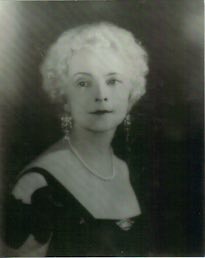
Anne Dallas Dudley
Political activist central to the campaign to pass the 19th Amendment to the U.S. Constitution. Serving as National Campaign Director as well as in her home state of Tennessee, she led a march of 2,000 women in the South’s first suffrage parade in 1914.
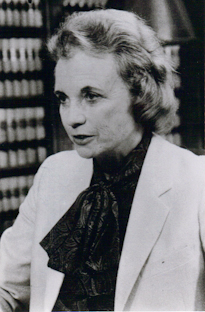
Sandra Day O'Connor
First woman appointed to the U.S. Supreme Court. Following successes as Assistant Attorney General and State Senator in Arizona, O’Connor was elected to Superior Court and then the Court of Appeals. She was named to the Supreme Court by President Ronald Regan.
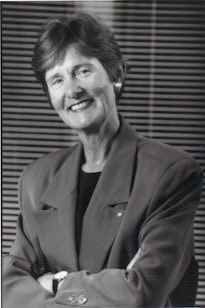
Nannerl O. Keohane
The first contemporary woman to head both a major women’s college (Wellesley) and a research university (Duke). Her efforts have increased minority student enrollment and improved faculty diversity.
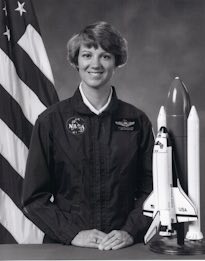
Eileen Collins
First American woman to pilot a spacecraft. A math teacher at the Air Force Academy and test pilot, Collins served as pilot of the space shuttle Discovery during a mission to rendezvous with space station Mir. In July, 1999 she became NASA’s first female commander in space.
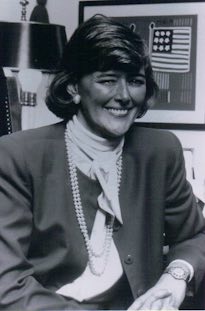
Patricia Schroeder
Served as the senior woman in Congress, first elected in 1972 from Colorado. Schroeder worked to establish a national pro-family policy, promoting issues such as parental leave, child care and family planning.
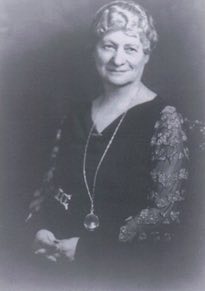
Hannah Greenebaum Solomon
Club woman and welfare worker on matters relating to child welfare, she organized a nationwide Jewish Women’s Congress as part of the 1890’s World’s Fair. It later became the National Council of Jewish Women, to which she was elected its first president.

Anne Dallas Dudley
Political activist central to the campaign to pass the 19th Amendment to the U.S. Constitution. Serving as National Campaign Director as well as in her home state of Tennessee, she led a march of 2,000 women in the South’s first suffrage parade in 1914.

Sandra Day O'Connor
First woman appointed to the U.S. Supreme Court. Following successes as Assistant Attorney General and State Senator in Arizona, O’Connor was elected to Superior Court and then the Court of Appeals. She was named to the Supreme Court by President Ronald Regan.

Nannerl O. Keohane
The first contemporary woman to head both a major women’s college (Wellesley) and a research university (Duke). Her efforts have increased minority student enrollment and improved faculty diversity.

Eileen Collins
First American woman to pilot a spacecraft. A math teacher at the Air Force Academy and test pilot, Collins served as pilot of the space shuttle Discovery during a mission to rendezvous with space station Mir. In July, 1999 she became NASA’s first female commander in space.

Patricia Schroeder
Served as the senior woman in Congress, first elected in 1972 from Colorado. Schroeder worked to establish a national pro-family policy, promoting issues such as parental leave, child care and family planning.

Hannah Greenebaum Solomon
Club woman and welfare worker on matters relating to child welfare, she organized a nationwide Jewish Women’s Congress as part of the 1890’s World’s Fair. It later became the National Council of Jewish Women, to which she was elected its first president.
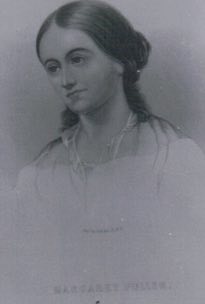
Margaret Fuller
Literary critic, editor, teacher and author. Fuller’s early writings inspired leaders of women’s rights. She was editor of the The Dial, a Transcendental journal, and she advocated liberation for all humanity.
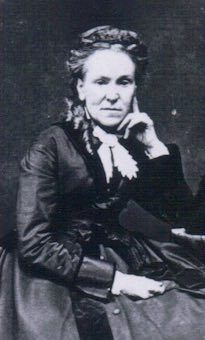
Matilda Joslyn Gage
Best known as the co-author (with Elizabeth Cady Stanton and Susan B. Anthony) of The History of Women’s Suffrage. She served in the National Women’s Suffrage Association and helped form suffrage groups in order to gain the right to vote for women.
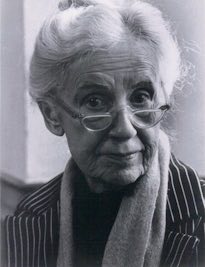
Maggie Kuhn
Following a forced retirement at age 65, Kuhn began work forming the Gray Panthers, an organization which addressed age discrimination and pension rights. Kuhn also addressed large public issues, including nursing home reform, forced retirement and fraud against the elderly.
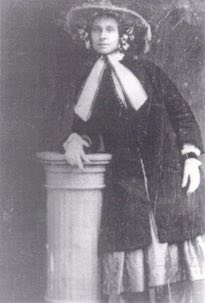
Amelia Bloomer
First woman to own, operate and edit a newspaper for women, The Lily. First published in 1849 in Seneca Falls, New York, it became a recognized forum for women’s rights issues. She often wore full-cut pantaloons under a short skirt, giving birth to the term “bloomers.”
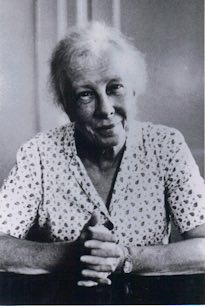
Lillian Moller Gilbreth
Industrial engineer and expert in motion studies, Gilbreth was a pioneer in the relationship between engineering and human relations. She convinced managers that worker-efficiency is the result of the quality of the work environment.
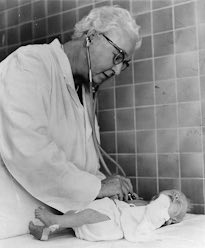
Virginia Apgar
Physician best known for development of the Apgar Score in 1952. This system of simple tests is used to determine whether a newborn child requires special medical attention, and it has saved thousands of lives.

Margaret Fuller
Literary critic, editor, teacher and author. Fuller’s early writings inspired leaders of women’s rights. She was editor of the The Dial, a Transcendental journal, and she advocated liberation for all humanity.

Matilda Joslyn Gage
Best known as the co-author (with Elizabeth Cady Stanton and Susan B. Anthony) of The History of Women’s Suffrage. She served in the National Women’s Suffrage Association and helped form suffrage groups in order to gain the right to vote for women.

Maggie Kuhn
Following a forced retirement at age 65, Kuhn began work forming the Gray Panthers, an organization which addressed age discrimination and pension rights. Kuhn also addressed large public issues, including nursing home reform, forced retirement and fraud against the elderly.

Amelia Bloomer
First woman to own, operate and edit a newspaper for women, The Lily. First published in 1849 in Seneca Falls, New York, it became a recognized forum for women’s rights issues. She often wore full-cut pantaloons under a short skirt, giving birth to the term “bloomers.”

Lillian Moller Gilbreth
Industrial engineer and expert in motion studies, Gilbreth was a pioneer in the relationship between engineering and human relations. She convinced managers that worker-efficiency is the result of the quality of the work environment.

Virginia Apgar
Physician best known for development of the Apgar Score in 1952. This system of simple tests is used to determine whether a newborn child requires special medical attention, and it has saved thousands of lives.
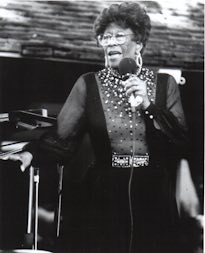
Ella Fitzgerald
World-renowned jazz singer and the first pop musician awarded the Lincoln Center Medallion. At 15, she entered a talent contest to dance. Her knees shook so much during the contest, she chose to sing instead and was discovered by a Chick Webb band member.
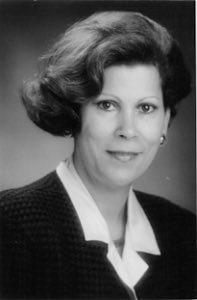
Antonia Novello
First woman and first Hispanic to be named Surgeon General of the United States. A pediatrician, Novello has used her position to alleviate suffering worldwide, especially for women and children.
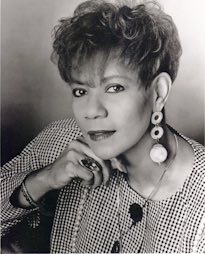
Wilma Rudolph
First American woman ever to win three gold medals in the Olympics. A track and field champion, Rudolph elevated women’s track to a major presence in the United States. She created the Wilma Rudolph Foundation to help train young athletes.

Ella Baker
Premier behind-the-scenes organizer and co-founder of the Southern Christian Leadership Conference (SCLC), headed by Martin Luther King, Jr. Baker also helped establish the civil rights movement’s foremost student organization, the Student Non-Violent Coordinating Committee.
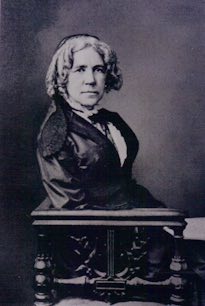
Maria Mitchell
An astronomer who discovered a new comet in 1847, Maria Mitchell was the first woman named to membership in the American Academy of Arts & Sciences. She was also a founder of the Association for the Advancement of Women.
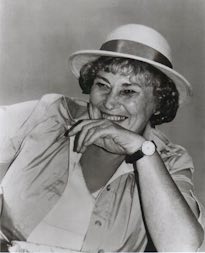
Bella Abzug
Civil rights and labor attorney elected to Congress from New York City in 1970. Abzug made her career as an advocate for women, the poor and those victimized by repression. A lifelong feminist activist, she played a major role in many national and international women’s conferences. Before her death, she chaired the Women’s Environment and Development Organization.

Ella Fitzgerald
World-renowned jazz singer and the first pop musician awarded the Lincoln Center Medallion. At 15, she entered a talent contest to dance. Her knees shook so much during the contest, she chose to sing instead and was discovered by a Chick Webb band member.

Antonia Novello
First woman and first Hispanic to be named Surgeon General of the United States. A pediatrician, Novello has used her position to alleviate suffering worldwide, especially for women and children.

Wilma Rudolph
First American woman ever to win three gold medals in the Olympics. A track and field champion, Rudolph elevated women’s track to a major presence in the United States. She created the Wilma Rudolph Foundation to help train young athletes.

Ella Baker
Premier behind-the-scenes organizer and co-founder of the Southern Christian Leadership Conference (SCLC), headed by Martin Luther King, Jr. Baker also helped establish the civil rights movement’s foremost student organization, the Student Non-Violent Coordinating Committee.

Maria Mitchell
An astronomer who discovered a new comet in 1847, Maria Mitchell was the first woman named to membership in the American Academy of Arts & Sciences. She was also a founder of the Association for the Advancement of Women.

Bella Abzug
Civil rights and labor attorney elected to Congress from New York City in 1970. Abzug made her career as an advocate for women, the poor and those victimized by repression. A lifelong feminist activist, she played a major role in many national and international women’s conferences. Before her death, she chaired the Women’s Environment and Development Organization.
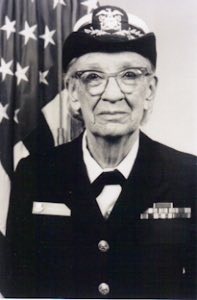
Grace Hopper
A mathematics genius and computer pioneer, Grace Hopper created computer programming technology that forever changed the flow of information and paved the way for modern data processing. In 1952, Hopper was credited with creating the first compiler for modern computers, a program that translates instructions written by a programmer into codes that can be read by a computer. Hopper was the first woman to hold the rank of Rear Admiral in the U.S. Navy.
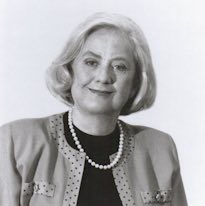
Muriel Siebert
First woman to own a seat on the New York Stock Exchange (1967). She was also the nation’s first-ever discount broker and the first woman to serve as Superintendent of Banks for the State of New York.
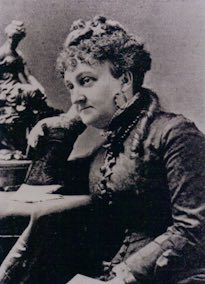
Myra Bradwell
America’s first woman lawyer. When denied permission to practice law in Illinois (despite passing the bar examination) because of her gender, she began publishing The Chicago Legal News, a very successful legal journal. When the laws changed in 1892, Bradwell was admitted to practice in Illinois and in the U.S. Supreme Court.
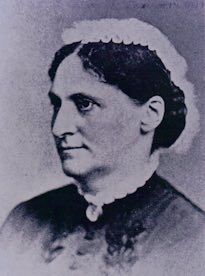
Linda Richards
Received the first diploma awarded by the nation’s first school of nursing. Richards dedicated her career to creating professional nurses training schools nationwide to improve both patient care and nurses’ skills.
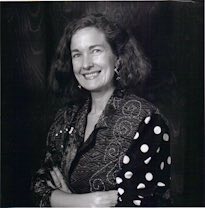
Helen LaKelly Hunt
Creative philanthropist who has used her own resources and others to create women’s funding institutions. Hunt is Co-founder of the National Network of Women’s Funds, and creator of the New York Women’s Foundation, the Dallas Women’s Foundation, and The Sister Fund, all of which provide resources to support grass roots women’s programs and projects.
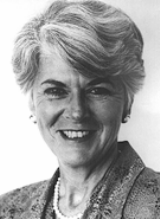
Geraldine Ferraro
First woman nominated by a major political party as a candidate for Vice President of the United States. Chosen to serve as the running mate of Democratic Presidential Nominee Walter Mondale in 1984, Ferraro had been an Assistant District Attorney in New York and later served in the United States Congress.

Grace Hopper
A mathematics genius and computer pioneer, Grace Hopper created computer programming technology that forever changed the flow of information and paved the way for modern data processing. In 1952, Hopper was credited with creating the first compiler for modern computers, a program that translates instructions written by a programmer into codes that can be read by a computer. Hopper was the first woman to hold the rank of Rear Admiral in the U.S. Navy.

Muriel Siebert
First woman to own a seat on the New York Stock Exchange (1967). She was also the nation’s first-ever discount broker and the first woman to serve as Superintendent of Banks for the State of New York.

Myra Bradwell
America’s first woman lawyer. When denied permission to practice law in Illinois (despite passing the bar examination) because of her gender, she began publishing The Chicago Legal News, a very successful legal journal. When the laws changed in 1892, Bradwell was admitted to practice in Illinois and in the U.S. Supreme Court.

Linda Richards
Received the first diploma awarded by the nation’s first school of nursing. Richards dedicated her career to creating professional nurses training schools nationwide to improve both patient care and nurses’ skills.

Helen LaKelly Hunt
Creative philanthropist who has used her own resources and others to create women’s funding institutions. Hunt is Co-founder of the National Network of Women’s Funds, and creator of the New York Women’s Foundation, the Dallas Women’s Foundation, and The Sister Fund, all of which provide resources to support grass roots women’s programs and projects.

Geraldine Ferraro
First woman nominated by a major political party as a candidate for Vice President of the United States. Chosen to serve as the running mate of Democratic Presidential Nominee Walter Mondale in 1984, Ferraro had been an Assistant District Attorney in New York and later served in the United States Congress.
